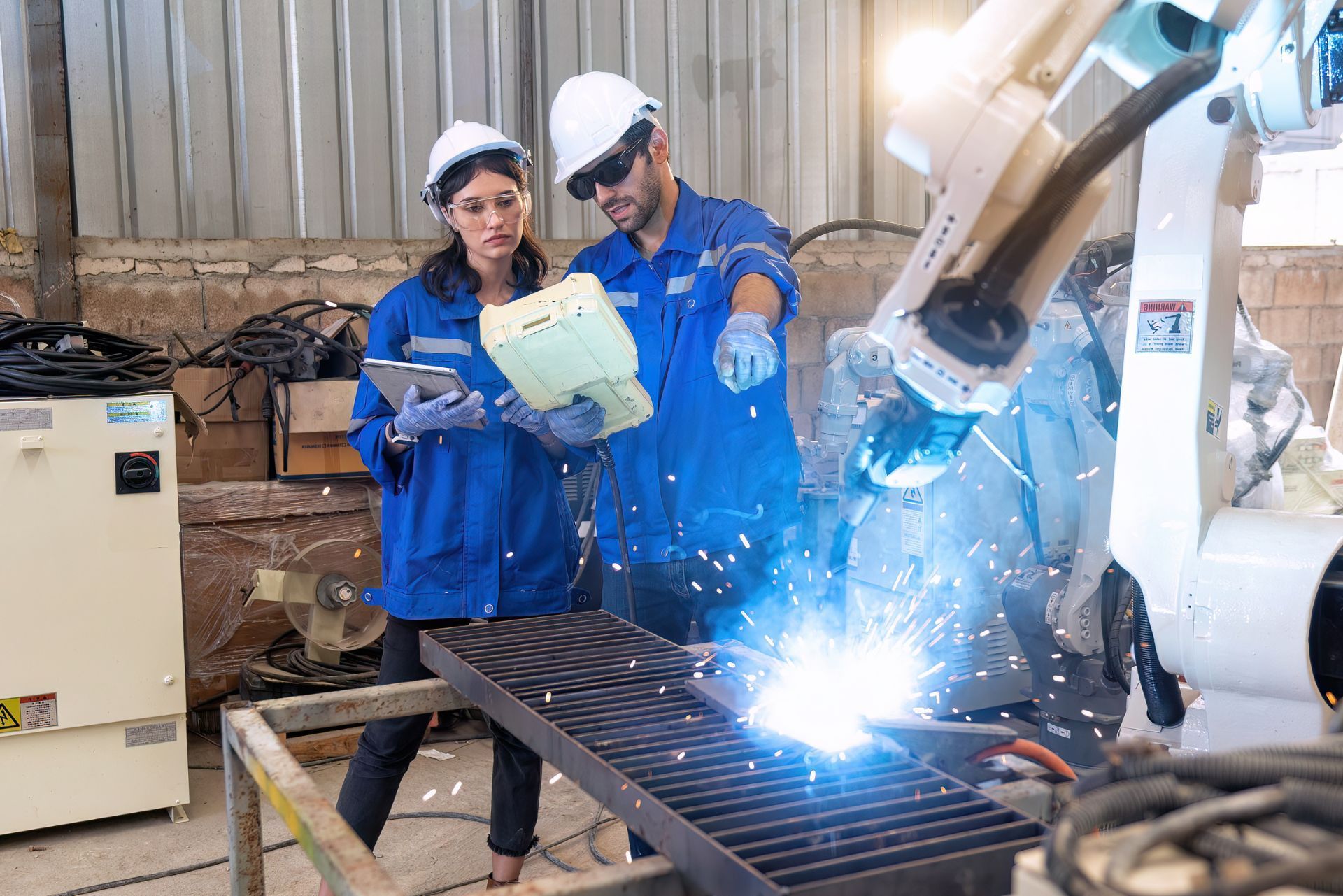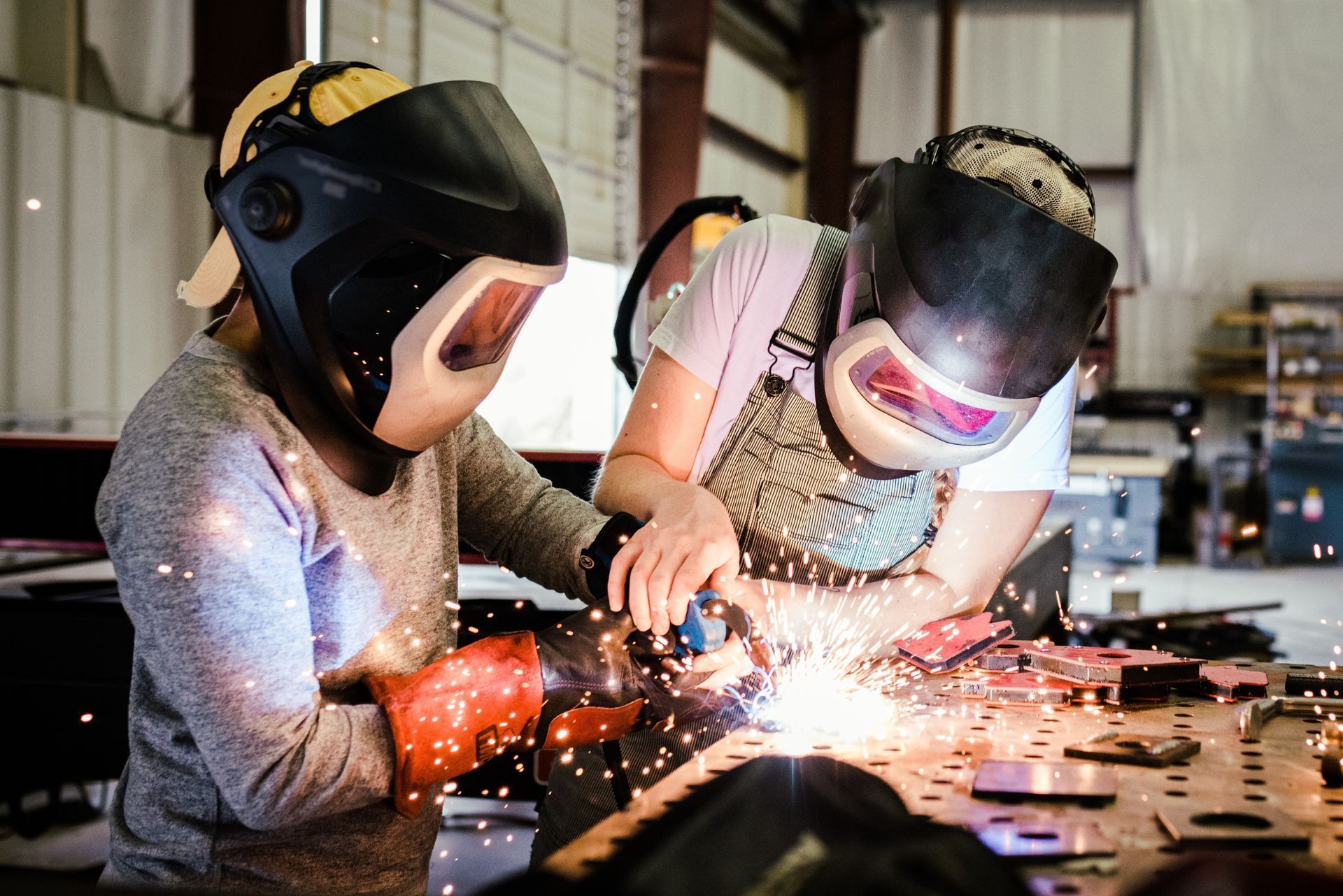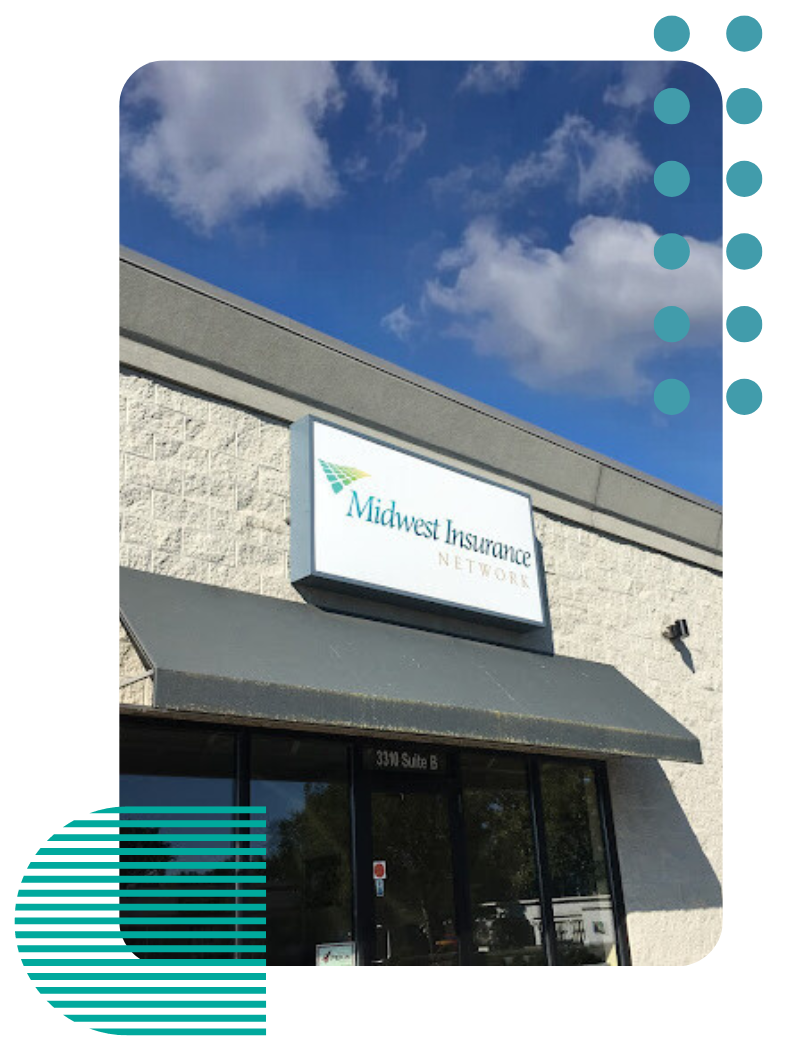Get in touch
419-720-5825
agency@midwest-insure.com
Top 3 Recommended Policies
Index
Understanding Welding Contractors Insurance
Legal Requirements for Welding Contractors in Ohio
The Importance of Having Insurance
Choosing the Right Insurance Provider
Cost of Welding Contractors Insurance in Ohio
Claims Process for Welding Contractors Insurance
Contact Us
Phone
agency@midwest-insure.com
Location
Northwood, OH
3310 Woodville Road, Suite D
Northwood, OH 43619
Elmore, OH
361 Rice Street
Elmore, OH 43416
welding contractors play a crucial role in various industries, from construction to manufacturing. However, with the nature of welding work comes certain risks that can lead to significant
financial losses. This is where insurance becomes essential. In Ohio, welding contractors need to be aware of the specific types of insurance available to protect their businesses. This article will delve into the ins and outs of welding contractors insurance in Ohio, covering everything from the types of coverage available to the
legal requirements and benefits of having insurance.
Understanding Welding Contractors Insurance
Welding contractors insurance is designed to protect businesses from various risks associated with welding operations. It encompasses several types of coverage tailored to meet the unique needs of welding contractors. Understanding these different types of insurance can help contractors make informed decisions about their coverage options.
Types of Insurance Coverage
There are several key types of insurance coverage that welding contractors in Ohio should consider. Each type serves a specific purpose and can provide essential protection against potential risks.
- General Liability Insurance: This is a fundamental coverage that protects contractors from third-party claims of bodily injury or property damage. For example, if a client or a bystander is injured on the job site, general liability insurance can cover medical expenses and legal fees.
- Workers' Compensation Insurance: This insurance is mandatory in Ohio for businesses with employees. It provides coverage for medical expenses and lost wages for employees who are injured on the job. It also protects the employer from lawsuits related to workplace injuries.
- Commercial Auto Insurance: Welding contractors often need to transport equipment and materials. Commercial auto insurance covers vehicles used for business purposes, protecting against accidents, theft, and damage.
Additional Coverage Options
In addition to the basic types of insurance, welding contractors may also want to consider additional coverage options to further protect their businesses.
- Equipment Insurance: This coverage protects against loss or damage to welding equipment, tools, and machinery. Given the high cost of welding equipment, this insurance can be invaluable.
- Professional Liability Insurance: Also known as errors and omissions insurance, this coverage protects contractors against claims of negligence or failure to deliver services as promised. This is particularly important for contractors who provide consulting or design services.
- Pollution Liability Insurance: If welding operations involve hazardous materials, this insurance can protect against claims related to pollution or environmental damage.
Moreover, it is essential for welding contractors to stay informed about the specific regulations and requirements in their state. For instance, Ohio has particular mandates regarding safety standards and reporting procedures that contractors must adhere to. Failing to comply with these regulations not only jeopardizes the safety of workers but can also lead to significant financial penalties. By ensuring they have the right insurance coverage, contractors can navigate these complexities with greater confidence, knowing they are protected against potential legal and financial repercussions.
Additionally, contractors should regularly review and update their insurance policies to reflect any changes in their business operations or the scale of their projects. As a welding business grows, so do its risks and insurance needs. Engaging with an insurance broker who specializes in construction or welding can provide valuable insights and help tailor coverage to the specific nuances of the contractor's work. This proactive approach not only safeguards the business but also enhances its credibility and trustworthiness in the eyes of clients and partners alike.

Legal Requirements for Welding Contractors in Ohio
In Ohio, welding contractors must adhere to specific legal requirements regarding insurance. Understanding these requirements is crucial for compliance and to avoid potential legal issues.
Mandatory Insurance Coverage
Ohio law mandates that all employers, including welding contractors, carry workers' compensation insurance. This coverage is designed to protect employees who may be injured while performing their job duties. Failure to obtain this insurance can result in severe penalties, including fines and legal action. Additionally, welding contractors are often encouraged to consider general liability insurance, which covers third-party claims for bodily injury and property damage that may occur during welding operations. This additional layer of protection not only safeguards the business but also enhances its credibility in the eyes of clients and partners.
Licensing and Permits
While insurance is a critical component of operating a welding business, obtaining the proper licenses and permits is equally important. Welding contractors in Ohio must ensure they have the necessary licenses to operate legally. This often includes a contractor's license and any specific permits required for welding work. Moreover, it is essential for contractors to stay updated on local regulations, as municipalities may have their own requirements that differ from state laws. For example, certain cities may require additional certifications for specialized welding techniques or safety protocols, which can vary based on the type of projects being undertaken. Understanding these nuances can prevent costly delays and ensure that projects are completed without legal hindrances.
The Importance of Having Insurance
Having adequate insurance coverage is not just a legal requirement; it also provides peace of mind and financial security for welding contractors. The importance of insurance cannot be overstated, as it can protect against unforeseen circumstances that could otherwise jeopardize a business.
Financial Protection
One of the primary reasons for having insurance is to protect against financial losses. Accidents can happen at any time, and without insurance, a contractor could face significant out-of-pocket expenses. This includes costs associated with legal claims, medical expenses, and equipment replacement. Moreover, the potential for business interruption due to an accident can lead to lost income, further compounding the financial strain. Insurance can help mitigate these risks by covering not only immediate costs but also providing resources for recovery and continuity, allowing contractors to focus on their work rather than financial burdens.
Enhancing Credibility
Insurance can also enhance a contractor's credibility in the eyes of clients and partners. Many clients prefer to work with insured contractors as it demonstrates a commitment to professionalism and risk management. Being insured can give contractors a competitive edge in the marketplace. Furthermore, having insurance can also open doors to larger projects that require proof of coverage, as many corporations and government contracts mandate insurance as a prerequisite. This not only expands the potential client base but also fosters trust and reassurance among stakeholders, knowing that they are working with a responsible contractor who prioritizes safety and compliance.
Compliance with Regulations
In addition to financial protection and credibility, having insurance is often a matter of regulatory compliance. Many states and local governments have specific insurance requirements for contractors, particularly in the welding industry, where the risks can be higher due to the nature of the work. Failing to meet these requirements can lead to fines, legal penalties, or even the loss of the ability to operate. By securing the appropriate insurance, contractors not only protect themselves but also ensure they are operating within the legal frameworks set by governing bodies. This compliance can further enhance their reputation and reliability in the industry.
Risk Management Strategies
Moreover, insurance is a critical component of a comprehensive risk management strategy. It encourages contractors to assess their operations, identify potential hazards, and implement safety measures to mitigate risks. Many insurance providers offer resources and support for developing safety protocols, which can lead to a safer work environment and reduce the likelihood of accidents. By proactively managing risks, contractors can not only lower their insurance premiums over time but also create a culture of safety that benefits their employees and clients alike. This holistic approach to risk management can ultimately lead to a more sustainable and successful business model.
Choosing the Right Insurance Provider
When it comes to selecting an insurance provider, welding contractors should conduct thorough research to find a company that meets their specific needs. The right provider can make a significant difference in the quality of coverage and customer service. With the complexities involved in welding operations, having a reliable insurance partner is not just a luxury; it’s a necessity that can safeguard both the contractor's business and their clients’ interests.
Factors to Consider
Several factors should be considered when choosing an insurance provider:
- Reputation: Look for an insurance company with a solid reputation in the industry. Reading reviews and testimonials can provide insight into the experiences of other contractors. Additionally, checking for industry awards or recognitions can further validate a provider's standing in the market.
- Coverage Options: Ensure that the provider offers the specific types of coverage needed for welding operations. Customizable policies can be beneficial for addressing unique risks. For instance, coverage for equipment breakdown, liability for third-party injuries, and protection against environmental hazards are crucial for welding contractors.
- Customer Service: Good customer service is essential for addressing questions and concerns. A responsive provider can make the claims process smoother and less stressful. It's also helpful to assess the availability of support, such as whether they offer 24/7 assistance or a dedicated claims representative.
Obtaining Quotes
Once potential providers have been identified, obtaining quotes is the next step. It is advisable to request quotes from multiple companies to compare coverage options and premiums. This will help contractors find the best value for their insurance needs. When requesting quotes, be prepared to provide detailed information about your business operations, including the types of welding services offered, the equipment used, and the size of your workforce. This information will enable insurers to tailor their quotes more accurately to your specific situation.
Moreover, while comparing quotes, contractors should not solely focus on the premium costs. It’s essential to evaluate the deductibles, coverage limits, and any exclusions that may apply. Understanding the fine print can prevent unpleasant surprises in the event of a claim. Additionally, some providers may offer discounts for bundling multiple policies, such as general liability and equipment insurance, which can lead to significant savings over time.
Cost of Welding Contractors Insurance in Ohio
The cost of welding contractors insurance can vary widely based on several factors, including the size of the business, the types of coverage selected, and the contractor's claims history. Understanding what influences insurance costs can help contractors budget effectively.
Factors Influencing Insurance Premiums
Several key factors can impact the cost of insurance premiums for welding contractors:
- Business Size: Larger businesses with more employees and higher revenue may face higher premiums due to increased risk exposure.
- Claims History: A contractor with a history of frequent claims may be viewed as a higher risk, resulting in increased premiums.
- Coverage Limits: The higher the coverage limits selected, the more expensive the policy will be. Contractors should carefully assess their needs to find a balance between adequate coverage and affordability.
Average Costs
While costs can vary, the average annual premium for general liability insurance for welding contractors in Ohio typically ranges from $500 to $2,500. Workers' compensation insurance costs can also vary based on payroll and industry classification, with rates generally falling between $1.00 and $2.00 per $100 of payroll.
In addition to these average costs, it is important for welding contractors to consider other types of insurance that may be beneficial for their specific operations. For instance, equipment insurance can protect against loss or damage to essential tools and machinery, which can be a significant investment for contractors. The cost for equipment insurance can vary based on the value of the equipment and the level of coverage selected, often adding another layer of expense to the overall insurance budget.
Moreover, contractors should also be aware of the importance of maintaining a good safety record. Implementing safety training programs and adhering to industry regulations can not only help in reducing the likelihood of accidents but may also lead to lower insurance premiums over time. Insurers often reward businesses that demonstrate a commitment to safety with discounts, making it crucial for welding contractors to prioritize risk management strategies as part of their operational practices.

Claims Process for Welding Contractors Insurance
Understanding the claims process is essential for welding contractors to ensure they can navigate it smoothly when needed. Knowing how to file a claim and what to expect can alleviate stress during challenging times.
Steps to File a Claim
Filing a claim typically involves several steps:
- Report the Incident: The first step is to report the incident to the insurance provider as soon as possible. This may involve filling out a claim form and providing details about the incident.
- Gather Documentation: Collect all relevant documentation, including photographs, witness statements, and any police reports if applicable. This information will help support the claim.
- Follow Up: After submitting the claim, it is essential to follow up with the insurance company to ensure the claim is being processed. Keeping communication open can expedite the process.
What to Expect During the Claims Process
The claims process can take time, and contractors should be prepared for potential delays. Insurance adjusters may need to investigate the claim, which can involve interviews and site visits. Contractors should remain patient and responsive during this phase.
Common Exclusions in Welding Contractors Insurance
While welding contractors insurance provides valuable protection, it is essential to be aware of common exclusions that may apply to policies. Understanding these exclusions can help contractors avoid unexpected surprises.
Typical Exclusions
Some common exclusions in welding contractors insurance may include:
- Intentional Acts: Insurance typically does not cover damages resulting from intentional acts or criminal activities.
- Wear and Tear: Normal wear and tear of equipment is usually not covered. Contractors should consider equipment maintenance and replacement strategies.
- Contractual Liability: Claims arising from contractual obligations that exceed standard liability may not be covered. Contractors should carefully review contracts to understand their liabilities.
Mitigating Risks
To mitigate risks associated with exclusions, welding contractors should implement safety protocols and maintain thorough documentation of their operations. Regular training and safety audits can also help reduce the likelihood of incidents that could lead to claims.
Conclusion
Welding contractors in Ohio face unique challenges and risks that make insurance an essential component of their business operations. Understanding the various types of coverage available, legal requirements, and the claims process can empower contractors to make informed decisions about their insurance needs. By choosing the right insurance provider and being aware of potential exclusions, welding contractors can protect their businesses and ensure a secure future.
Investing in comprehensive insurance coverage is not just about compliance; it is about safeguarding the hard work and dedication that goes into running a successful welding business. With the right insurance in place, contractors can focus on what they do best—delivering quality welding services to their clients.
REQUEST A QUOTE
Get welding contractors insurance today!
Welding Contractors Insurance
We will get back to you as soon as possible.
Please try again later.
Midwest Insurance Network is an independent insurance agency offering a one-on-one service for all our insurance clients. We help you navigate the sea of policy options and clarify any questions or concerns you may have along the way.
Quick Links
Services
All Rights Reserved | Midwest Insurance Network.




